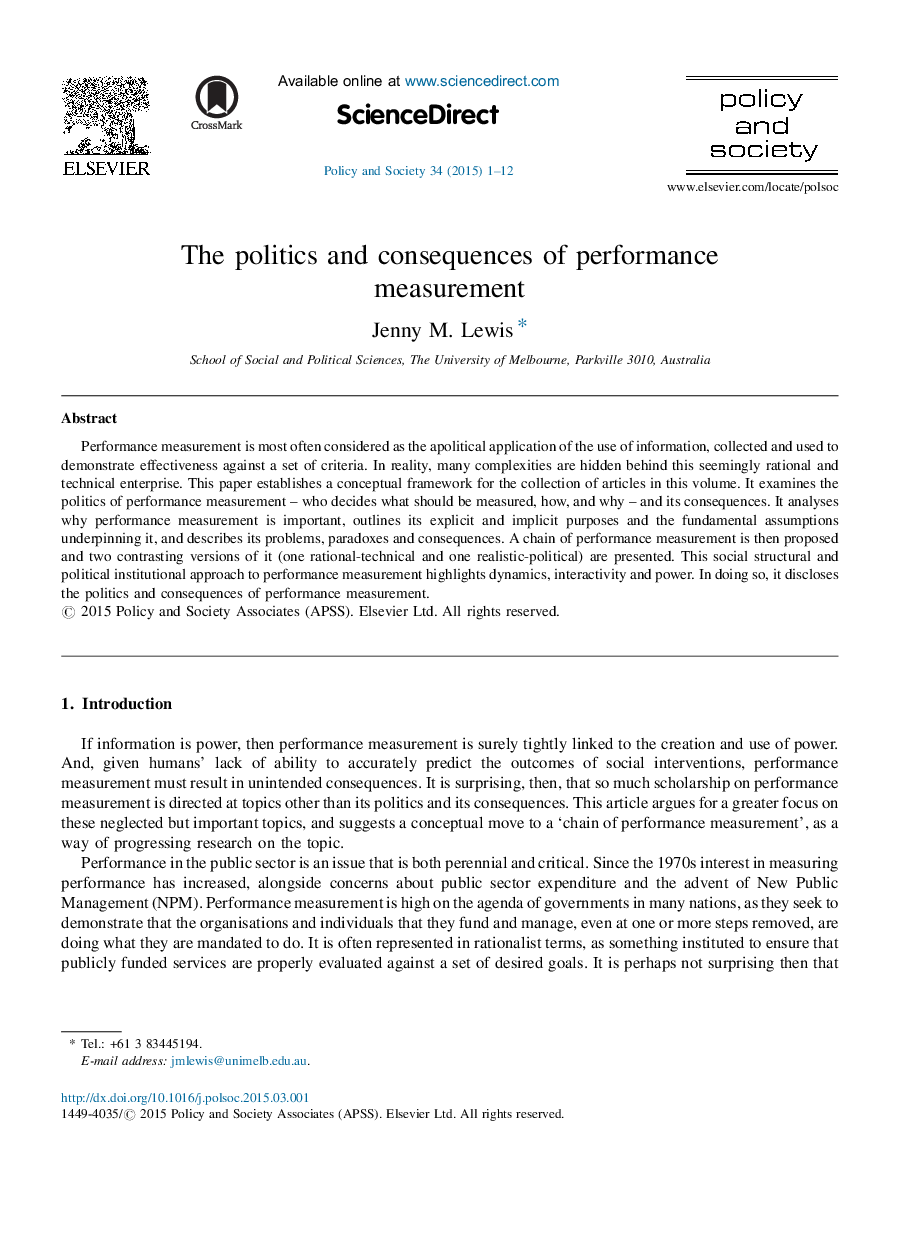| Article ID | Journal | Published Year | Pages | File Type |
|---|---|---|---|---|
| 1061515 | Policy and Society | 2015 | 12 Pages |
Performance measurement is most often considered as the apolitical application of the use of information, collected and used to demonstrate effectiveness against a set of criteria. In reality, many complexities are hidden behind this seemingly rational and technical enterprise. This paper establishes a conceptual framework for the collection of articles in this volume. It examines the politics of performance measurement – who decides what should be measured, how, and why – and its consequences. It analyses why performance measurement is important, outlines its explicit and implicit purposes and the fundamental assumptions underpinning it, and describes its problems, paradoxes and consequences. A chain of performance measurement is then proposed and two contrasting versions of it (one rational-technical and one realistic-political) are presented. This social structural and political institutional approach to performance measurement highlights dynamics, interactivity and power. In doing so, it discloses the politics and consequences of performance measurement.
